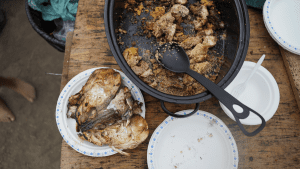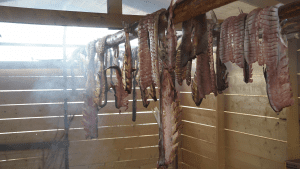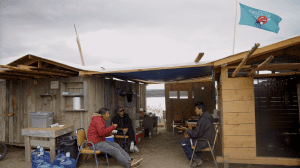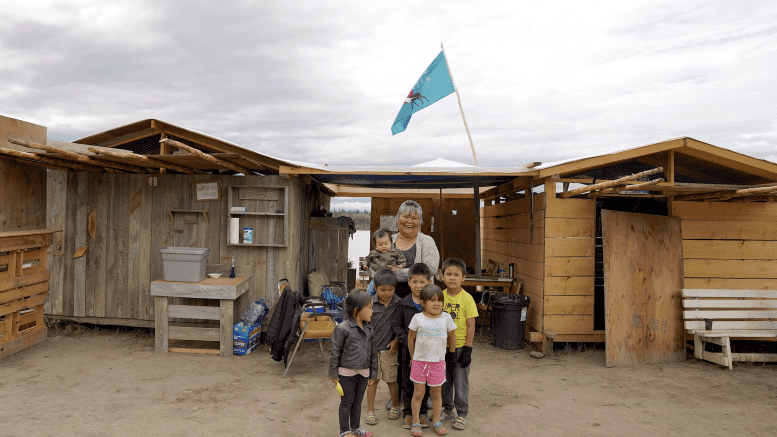Residents of Fort McPherson got a new fish camp this summer and they couldn’t be more excited.
Diane Koe has developed her fishing skills for 15 years and now she’s set up a fish camp so everybody in her community can learn how to harvest fish.
“Not everybody has a fish camp.”
But the fish camp is more than just eating and preparing fish but a hub for locals to come together.
When the camp opened in early July it brought roughly 200 residents to the camp, she says.
“We’re not selling our fish,” she says, “we’re feeding our people.”

A Gwich’in delicacy, fried fish guts. (Mariah Caruso/CKLB)
After catching, cooking, and preparing the fish, Diane and her team of volunteers will share the food with the Elders, first.
“We use all the fish parts,” she says.
Fried fish guts and Inconnu head are the most popular dishes.

The camps smokehouse filled with dry fish. (Mariah Caruso/CKLB)
Residents don’t rely on the grocery store to provide them with traditional foods, but local programs like this to sustain a proper cultural diet.
Koe says she’s even received calls from eager residents in Inuvik to participate in the program.
What’s different from Koe’s camp and other programs nearby is that nothing is for monetary gain.
Koe got the money from a federal fund called Jordans Principle.
Although the camp was only approved for one term, Koe hopes to bring it back again next year.
Koe is proud to share this opportunity with her community and, in the fall, says she plans on transitioning the camp to work with caribou.
Koe’s wanted her seven grandchildren to have “beautiful memories” out on the land, much like her late father, Thomas Koe, gave her.
“I can proudly say this is for my dad.”
She says she wanted her grandchildren to have the chance to experience this lifestyle, something she’s afraid won’t be around much longer without the support of more youth.
Elder Enne Colin spends more time at the fish camp than she does at home, and she prefers it that way.
She calls the camp a “Gwich’in Disneyland.”

“You can eat all you want,” she says, “but you got to work hard for it.”
There are fewer and fewer Elders in the community each year, she says, and much like Koe, she’s worried that these harvesting skills might become lost over time.
Koe’s fish camp sits overlooking the Peel River, consists of several tents a smokehouse and an open fire pit.
Dozens of residents come to the camp each day to reconnect with their traditional teachings, tell stories, eat and laugh together.
The camp is prepared to close its doors mid-august, due to funds running out.





